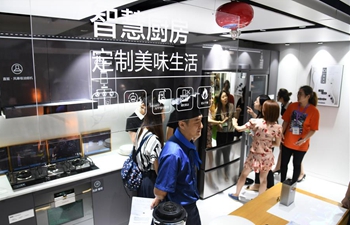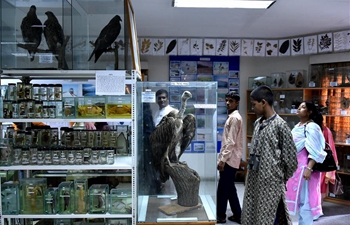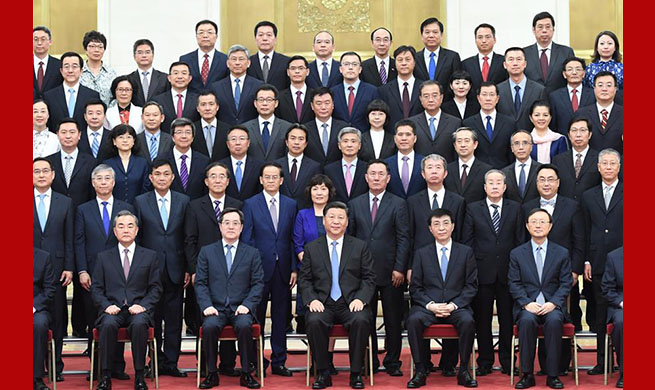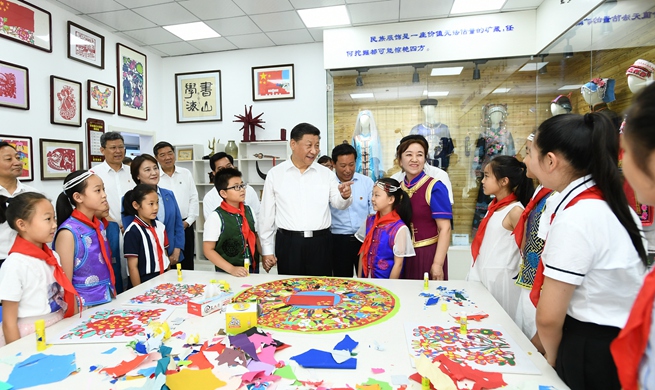GUANGZHOU, July 19 (Xinhua) -- Before driving to work, Wang Dongsheng made a reservation through social media platform WeChat for the use of some medical research equipment in a lab in Jinan University, south China's Guangdong Province.
Wang works for LongseeMed, a medical technology company that studies intestinal microecology on humans. Their research needs to conduct experiments at least once a month to test about 300 sample data, using high precision instruments that his company can barely afford.
In 2018, China launched a policy, allowing universities and research institutes to open the use of their imported research and development (R&D) instruments and devices, mainly in the biomedical field, to the society to reduce the cost of startups and support innovation.
In return, universities and research institutes sharing their equipment will enjoy tax reduction or exemption.
LongseeMed is one of the corporations benefiting from the policy. "It not only ensures that we can get reliable experimental data but also saves the company millions of yuan of investment in the purchasing, maintenance and management of the equipment," said Wang. "It allows us to put more energy into research and innovation."
In Jinan University, about 800 imported instruments and equipment with a total value of 700 million yuan (about 102 million U.S. dollars) are eligible for a tax deduction or exemption. They are now sharable to the public with over 6,000 users.
Jinan University has also benefited from the tariff and VAT relief policy on the imports of devices and saved roughly 120 million yuan over the past three years, according to Zhang Longzhao with the university's equipment management department.
"We also have opportunities to collaborate on research and innovation with companies by sharing our equipment," said Zhao.
Data showed that more than 1,100 sets of equipment have been shared since 2018 in Tianhe District of the city of Guangzhou, greatly reducing the R&D cost of institutes and enterprises and paving the way for further technological innovation.
China has been implementing a nationwide tax reform over the past years, and a new round of tax cut measures to spur corporate dynamism and competitiveness have been initiated since last year.
A major policy is the weighted pre-tax deduction of R&D expenses, which lifted the proportion of tax deduction of a company's R&D expenses from 50 percent to 75 percent.
In Guangdong alone (except Shenzhen), about 35,000 enterprises have benefited from the policy, with the total deduction in R&D expenses hitting 122.9 billion yuan in 2018, an increase of 74.7 percent over the same period of 2017.
"Thanks to the new tax incentives, our competitiveness in innovation significantly ramped up," said Lao Jiewei, secretary of the board of Golden Sea, a high-tech company in professional lighting. The company saved 789,000 yuan in taxes last year from the new policy.
"The new tax reduction package has greatly improved local company's capability and investment in innovation," said Long Zhaohui, an associate professor with the Sun Yat-sen University.

















